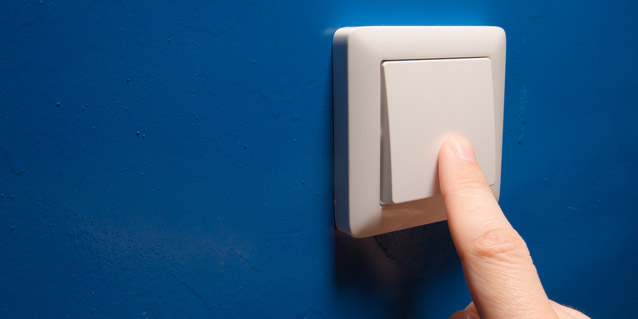EMA License: 9/21140 | Open 9am - 6pm | Monday to Saturday | Call 84193988

Turning Off the Lights Isn't the Best Way to Save Energy
It’s true that turning off the lights when you aren’t in the room is a great way to get into the habit of saving energy. However, this isn’t the best way to save energy. Sure, it might be able to shave a few dollars off of your monthly bill, but your lighting isn’t typically the thing that makes the biggest impact on your energy usage.
The bottom line is that there are different ways that you can save energy - and money - much more efficiently.
Understanding what electrical devices in your home take up the most energy, and then learning what habits you can develop to keep these items from using too much electricity is the best way to start saving. Check out the following guide to get a closer glimpse at what you can really be doing to save the environment and your electricity bill from going down the tubes.
Turning off Lights Helps, but Isn’t the Most Efficient Way to Save
The first thing you might think of when it comes to saving energy is turning off the lights. However, this isn’t the most efficient way to save.
So...what is the most efficient way to save?
Turning off your lights in addition to some other habits can really cut the edge off of your monthly bill. But if you really want to save the big bucks, as well as have less of a negative impact on the environment, you can turn to larger appliances like heating and laundry.
Think about built-in home appliances like your water heaterand washing machine. These consume far greater amounts of energy per hour of use than your lights do. While lights can be a constant drain on your electricity, they aren’t the biggest vampires to suck it all up. You can really reduce the cost of your bills by keeping your larger appliances in check.
What Drains the Most Energy?
Large appliances that are constantly running can easily take up the majority of your energy bill. For example, when is the last time you thought about your water heater? How much does your water heater run on a daily basis? Do you take showers? Do you wash your hands in warm water? Do you use laundry machines and dishwashers? Do All of these appliances rely on your water heater, which uses great amounts of electricity to run at an efficient and consistent level.
The reason we tend to turn to our lights as a first energy-saving response is because we directly interact with them. If we were to make an effort to think about the items that we don’t directly interact with, such as our water heaters, we can start to gain a different perspective on how energy is used around the home. On a daily basis, your water heater roars awake and eats energy to keep your water as hot as you like it. Your washing machine and heating units work much in the same way. The choice of incandescent bulbs over LED light installation services affects your electrical consumption on lighting. If you were to make a list of all of your appliances and devices every once in a while, you can start figuring out how to best cut costs.
Better Habits to Develop
Again, it’s important to understand what appliances we directly interact with, as opposed to the ones we indirectly interact with. We don’t often look at our water heater when we turn on the sink, but we subconsciously know it’s there. You can develop better energy-saving habits by remembering to use your water heater less.
Additional units like air conditioners and washers should only be used when it is absolutely necessary, and for a limited time. Doing the laundry takes up a lot of energy. Try air-drying your clothes instead of using the dryer. Turn your appliances on only at night to save money. All of these habits can help you develop a better sense of what you’re spending your money on every month.
Plus, these perspective changes can greatly benefit the environment, too! There’s no need to waste electricity when it can be utilized much more efficiently in the home.